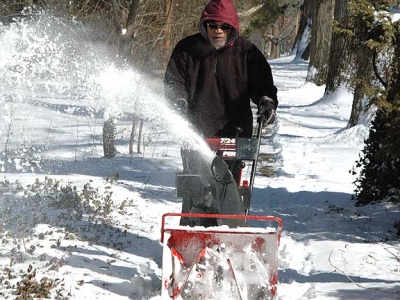Antioch College—Progress made after protest
- Published: March 28, 2019
Over the last two weeks, some Antioch College students have not been attending class to show support for student demands to change the way sexual offenses and incidents of racial discrimination are handled at the college.
Finals this week has meant a return to class for many students. Meanwhile, negotiations between students and college administration concluded this week with the administration reporting that all issues have been resolved for now.
At issue has been the way the college implements Antioch’s Sexual Offense Prevention Policy, or SOPP, and its Racial Discrimination Prevention Policy, or RDPP. Students have argued for additional layers of accountability and new leadership in handling investigations and resulting disciplinary actions.
That leadership is now in place — at least on an interim level. On Tuesday, Antioch confirmed that a new interim director and a new interim deputy director responsible for Title IX and SOPP had been assigned.
Mila Cooper, the current VP of diversity and inclusion at the college, will now also be the acting Title IX coordinator, according to a college spokesperson. Hannah Spirrison, director of innovation and institutional effectiveness, is now also the acting deputy Title IX coordinator. Permanent leaders to fill the positions will be sought.
The college also confirmed they would begin a “community process” to hire for two new positions, an SOPP and an RDPP advocate, the spokesperson confirmed.
Those changes were in line with Antioch student demands made on Monday, March 11. Additional demands at the time were for an “internal investigation and accountability committee” to look at past SOPP and Title IX complaints and the reinstatement of a Community Standards Board, consisting of staff and students, to uphold the SOPP, RDPP and the Antioch College Honor Code.
On Wednesday, Antioch College President Tom Manley reported that the two parties had come to terms on all of the demands.
“There is an agreement on what we need to do, and that also requires ongoing commitment, dialogue and responsiveness to legitimate student concerns,” Manley wrote in a statement.
Requests for comment from students and student leadership were not returned by press time.
In an interview last week, Manley said at the time he was hopeful that the issue would be resolved, but didn’t want to diminish the importance of the process.
“The issues being raised are significant and serious, the student frustrations are real and high,” he said.
In a statement this week from their executive committee, Antioch faculty members affirmed their support for the students and their recent actions. Faculty met with students soon after protests began and, after hearing their concerns, drafted a statement of support to the administration.
“Several of the faculty have witnessed evidence of unresolved grievances and tensions in our classrooms this quarter, and we wanted to send a clear message to the students that we are concerned about their well being,” the statement read in part. “In addition we wanted to express to the administration that this situation has an impact on our students, the classroom and our ability to fulfill the educational mission of the college.”
The faculty executive committee is Kevin McGruder, associate professor of history; Kim Landsbergen, associate professor of biology and environmental science and Mary Ann Davis, assistant professor of literature.
The protests began at a meeting of the Antioch Board of Trustees on Friday, March 8, during which students showed up to present their concerns along with a list of demands. On the same day, some faculty and staff were contacted by a student leader over email, and the faculty executive committee called an emergency meeting to learn more from students and offer their support.
Students presented a list of four demands to Manley by email on Monday, March, 11, asking for both a response that he had received the demands, and an approval of them by Tuesday afternoon. The message was sent through the college’s shared governance body Community Council, or ComCil, and signed “Most of the Student Body.”
Manley responded to student demands by the requested time on Tuesday, but the issues were not yet resolved. On Tuesday evening, a community meeting was held, during which the dialogue continued. Antioch College Board President Maureen Lynch attended that meeting after staying in touch with developments over the previous weekend.
“Hearing some of the thinking behind the demands was really helpful,” Lynch said of that meeting. The board is not negotiating on its own, Lynch said, but keeping track of the situation by meeting with students and the administration.
Manley said last week that he did not view the ongoing discussions between administration and students as “negotiation” but as part of the democratic process at Antioch.
“I see this less as a negotiation and more as a call for a stronger, clearer, more transparent shared governance process,” he said.
“We say we are a laboratory for democracy, and democracy is a messy process,” he added. “In that sense our students have high expectations and they want to make sure that they are holding us accountable to those.”
One Response to “Antioch College—Progress made after protest”
The Yellow Springs News encourages respectful discussion of this article.
You must login to post a comment.
Don't have a login? Register for a free YSNews.com account.












This is amazingly a repeat of most of Antioch’s problems over the last 40 or 50 years….”we are a laboratory for democracy” (and “student government”)…
Antioch as most of us who have graduated from it (or simply have attended) has been obliterated over this time frame. The student issues have become more racial and sexist, but the college is clearly at the end of its line.
This is very sad, but then the earth itself is being demolished by global warming, corporate greed, along with individual greed….so Antioch is just a small subset of what’s been happening to Mother Earth.